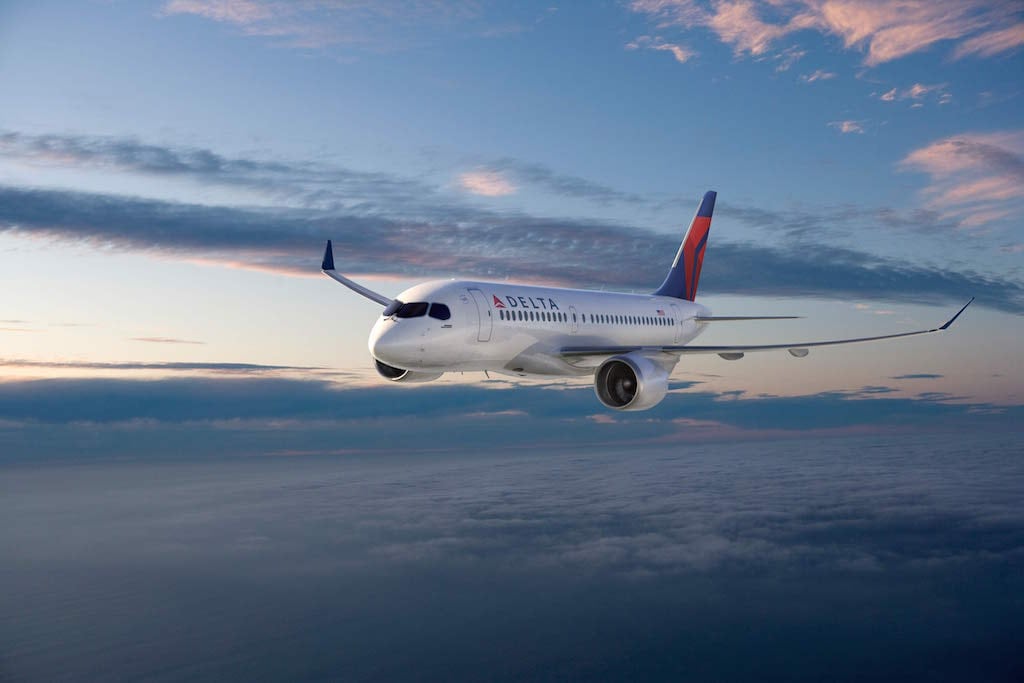Delta Will Fly Newest Jets With Fewer Middle Seats on Key Business Routes

Skift Take
Who says airlines don't prioritize passenger comfort? As long as carriers calculate passengers are willing to pay for a better experience, they will provide it.
When Delta Air Lines takes delivery of its newest — and likely most passenger-friendly — narrow-body jet early next year, it plans to deploy them in markets where its most lucrative passengers fly, an executive said Monday at a conference in Denver.
Delta will be the first U.S. airline to take delivery of the Airbus A220-100, a new, high-tech airplane with relatively wide seats and a roomy, quiet cabin. Delta ordered the roughly 100-seat aircraft in 2016, before Airbus acquired a majority interest in what was then called the Bombardier C Series. Airbus changed the aircraft's name in July, and has begun to market it more aggressively, having recently sold 60 of the larger A220-300 to JetBlue Airways.
Joe Esposito, Delta's senior vice president for network planning, said Delta expects to use the aircraft to replace regional jets on longer competitive routes such as New York to Dallas/Fort Worth, an American Airlines hub, and New York to
